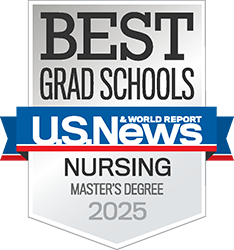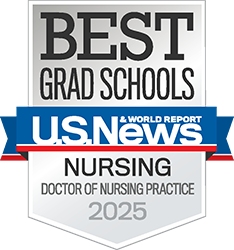Compassionate end-of-life care Team develops simulation for BSN students

Providing end-of-life care can be daunting for nursing students, and faculty at Cizik School of Nursing at UTHealth Houston will use a new grant to help prepare future nurses to communicate with patients and their families in these emotionally charged situations.
Associate Professor Bridgette Pullis, RN, PhD, CHPN, is working closely with Associate Professor Kristin Ownby, PhD, AOCN, ACHPN, ANP-BC, ACNS-BC, and other team members on a new grant to develop a simulation to help nursing students overcome trepidation about providing end-of-life care for patients and their families.
“The idea of providing end-of-life care can trigger anxiety for nursing students, highlighting a lack of preparation in communicating with patients and their families during emotionally charged conversations,” Pullis said. “Such a gap in preparedness highlights the need for increased guidance and effective training that boosts confidence and sharpens skills in this critical aspect of nursing.”
Pullis received use a $10,000 Dean’s Research Award for the project, “Competency-Based Education: Teaching Nursing Students EOL Communication Skills through Simulation.” The study will examine how confident Bachelor of Science in Nursing students feel when talking to patients and their families before and after participating in realistic training sessions. The team will measure how the realistic practice sessions improve students’ communications skills and handling of end-of-life care situations.
Nursing students will participate in a 45-minute training scenario, followed by a discussion where they can reflect on what they learned and how they felt. Some students will also join discussions to share their overall experience, which will help faculty better understand how the training helps improve communication skills and end-of-life care competency.
“The study results will help inform future curriculum development, integrating more robust end-of-life content into undergraduate nursing programs,” said Ownby. “Ultimately, we hope the project advances nursing education by equipping aspiring nurses with the essential skills and confidence they need to navigate the complexities of end-of-life care with empathy and professionalism.”
In addition to Ownby, co-investigators are Riza Mauricio, PhD, APRN, CPNP-PC/AC, FCCM; Mandi Lyons, DNP, MSN, RN, WHNP-BC, CHSE; Darlene Acorda, PhD, RN, CNE, CPNP-PC; Joyce Ju, DNP, RN, FNP-CB, CNE; and Kelli M. Galle, MSN, RN, FNP-BC, from the Department of Undergraduate Studies.
Laura Frnka-Davis



